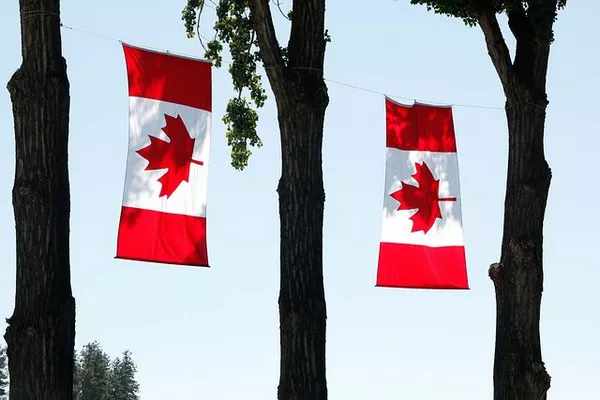Canada Day, observed annually on July 1st, is a significant national holiday that celebrates the formation of the nation of Canada. This day holds immense importance for Canadians across the country and is marked by festivities, parades, fireworks, and various cultural events. In this article, we will delve into the history, traditions, and significance of Canada Day, exploring how it reflects Canadian identity and values.
Historical Background
Canada Day commemorates the establishment of the Dominion of Canada through the Constitution Act, 1867, formerly known as the British North America Act. This act united the provinces of Ontario, Quebec, New Brunswick, and Nova Scotia into a single federation within the British Empire, under the name “Canada.” The date of July 1st was chosen because it marks the anniversary of the formation of the Dominion in 1867.
Prior to being officially recognized as Canada Day, the holiday was known as Dominion Day. The term “Dominion” reflected Canada’s status as a self-governing colony within the British Empire. Over time, as Canada’s identity evolved and it gained greater independence, the holiday became known as Canada Day in 1982, following the patriation of the Constitution and the establishment of the Charter of Rights and Freedoms.
National Celebration
Canada Day is celebrated with enthusiasm and pride throughout the country. It is a statutory holiday in all provinces and territories, allowing Canadians to participate in festivities and take part in community events. The celebrations typically include:
- Parades: Many cities and towns organize parades featuring floats, marching bands, and community groups. These parades showcase Canadian culture, history, and diversity.
- Fireworks: Fireworks displays are a highlight of Canada Day celebrations. Cities across the country light up the night sky with dazzling fireworks shows, attracting locals and visitors alike.
- Cultural Events: Festivals, concerts, and cultural performances are held to celebrate Canada’s heritage and diversity. These events often feature music, dance, art exhibitions, and traditional Indigenous ceremonies.
- Outdoor Activities: Canadians embrace the summer weather by participating in outdoor activities such as picnics, barbecues, sports tournaments, and beach outings.
- Ceremonies and Official Functions: Government officials, including the Prime Minister and Governor General, participate in ceremonies that reaffirm Canada’s values and achievements. These events may include citizenship ceremonies for new Canadians.
Symbolism and Canadian Identity
Canada Day is not only a celebration of a historical event but also a reflection of Canadian values and identity. It serves as a reminder of:
- Unity and Diversity: Canada is known for its multiculturalism and inclusivity. Canada Day celebrations highlight the diversity of its population, with events that showcase cultural traditions from Indigenous peoples, immigrants, and various ethnocultural communities.
- Patriotism and National Pride: Canadians display their patriotism through displays of national flags, wearing red and white clothing (the colors of the Canadian flag), and participating in activities that demonstrate pride in their country.
- Heritage and History: Canada Day encourages reflection on the country’s history, including its Indigenous roots, colonial past, and evolution into a modern nation. Efforts to reconcile with Indigenous peoples and recognize their contributions are increasingly prominent during these celebrations.
- Values of Freedom and Democracy: The holiday underscores Canada’s commitment to democracy, human rights, and the rule of law, as embodied in the Canadian Charter of Rights and Freedoms. It is a time to celebrate the freedoms and liberties enjoyed by Canadians.
Indigenous Perspectives
For Indigenous peoples in Canada, Canada Day can evoke mixed feelings. While it is a day to celebrate their cultures and contributions, it also represents a history of colonization, displacement, and ongoing struggles for recognition and justice. Some Indigenous communities choose to participate in Canada Day celebrations, while others may organize alternative events that highlight Indigenous resilience and heritage.
Efforts to incorporate Indigenous perspectives into Canada Day celebrations are increasing, with events that acknowledge traditional territories, showcase Indigenous arts and performances, and promote dialogue on reconciliation. This inclusion reflects Canada’s ongoing commitment to reconciliation with Indigenous peoples and acknowledgment of their rights and contributions.
Contemporary Relevance
In recent years, Canada Day has taken on added significance amid discussions about national identity, multiculturalism, and social justice. Debates surrounding issues such as Indigenous rights, immigration policy, environmental stewardship, and social equity are often reflected in Canada Day events and public discourse.
The holiday serves as a platform for Canadians to engage in conversations about the country’s future direction and to reflect on its achievements and challenges. It encourages civic engagement and a sense of collective responsibility for shaping a more inclusive and prosperous society.
See also: What to Do on Canada Day Calgary
Conclusion
Canada Day is more than just a national holiday; it is a symbol of Canadian unity, diversity, and resilience. Through celebrations that highlight cultural heritage, civic pride, and community spirit, Canadians come together to honor their history and envision a shared future. As Canada continues to evolve, so too does the significance of Canada Day, reaffirming the values that define the nation and its people.
On July 1st each year, Canadians from coast to coast to coast proudly celebrate their country’s achievements and contributions to the world stage. Canada Day is a time to embrace the past, celebrate the present, and look forward to the future with optimism and hope for a better tomorrow.

